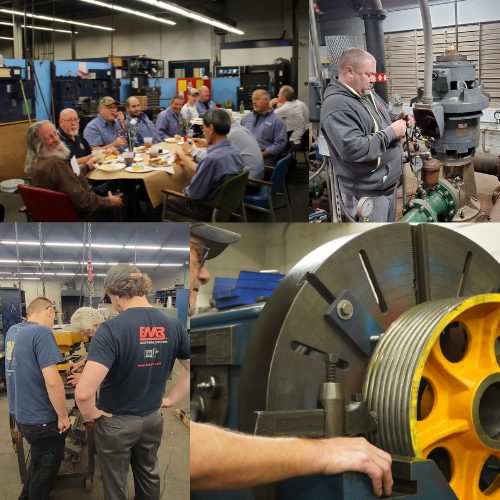Equipment Warranties – what you need to know.
Investing in commercial kitchen equipment is expensive. Knowing that this investment is protected by a manufacturer’s warranty can offer peace of mind, confidence, and reassurance.
Simply having warranty coverage is one thing, but understanding it is another. Bonnie Brooks has been with EMR for 35 years and as the resident authority on all things warranty, she knows the ins and outs of how repairs should be handled and has a customer-first mindset to help maximize coverage. This is why we’ve asked Bonnie to shine a light on her expertise by giving us a breakdown (no pun intended!) of some warranty basics that every operator should know.
What’s covered?
Warranties are designed to cover poor workmanship by the manufacturer. This could be anything from faulty wiring to a bad internal part, to improper welding and more. Any repair or replacement costs incurred due to faulty manufacturing like this are covered, thus providing you and your business with financial relief from a repair or replacement.
Little known fact worth mentioning up front — it’s important to note that damage that occurs during the shipment of your commercial equipment is not covered by the warranty. Rather, it is covered by the shipping carrier’s insurance. Always inspect the unit immediately after delivery and report damage right away.
What’s NOT covered?
Despite warranties being in place to protect you and your equipment, there are going to be times when a manufacturer denies a warranty claim and the owner is responsible for the full cost to repair or replace.
The following examples might be the cause of a void:
- Improper installation — Right off the bat, it’s imperative that equipment is installed according to the manufacturer’s guidelines. One mistake during installation can void a warranty, resulting in a hefty bill at the end of the day. This could be anything from using the wrong voltage, poor ventilation, or an improper gas supply.
- Commercial equipment being used in a home or residence — This is straightforward – if you use a commercial oven in a residential kitchen, the unit will not be covered under warranty.
- Misuse — Daily wear and tear of equipment is bound to happen, but the obvious neglect and abuse is what will deny a warranty claim. Simple things like a lack of cleaning, water damage to controls, leaving doors open, and overloading equipment are going to jeopardize the warranty coverage that your equipment holds.
Extended Warranties.
In addition to standard warranties, manufacturers often offer extended warranties at an additional cost. If you’re in a kitchen that is operating at all hours of the day, extended warranties are definitely beneficial. While this involves a higher upfront expenditure, it provides prolonged peace of mind by protecting your investment for an extended period. This might make sense if you are investing in a 6-figure unit that is operating at full capacity every day with an expected lifespan of 15-20 years.
Registering equipment.
Warranty registrations ensure that you get the full warranty period for your equipment. From the time you place the order and have it installed by a professional, you could be looking at a few weeks to a month from the time you are actually using it. It is important to register the product once you start using it, allowing you to take advantage of the full warranty period. Otherwise, the warranty providers might assume the shipment date as the start of the warranty period, thus resulting in lost coverage.
Another benefit of registering equipment is when service is needed, you won’t be searching high and low for proof of purchase and unit details. This can aid in organization and equipment documentation.
EMR is the authorized service agent (ASA) for many manufacturers. to find out if we can assist with your in-warranty work, please contact your local branch.




